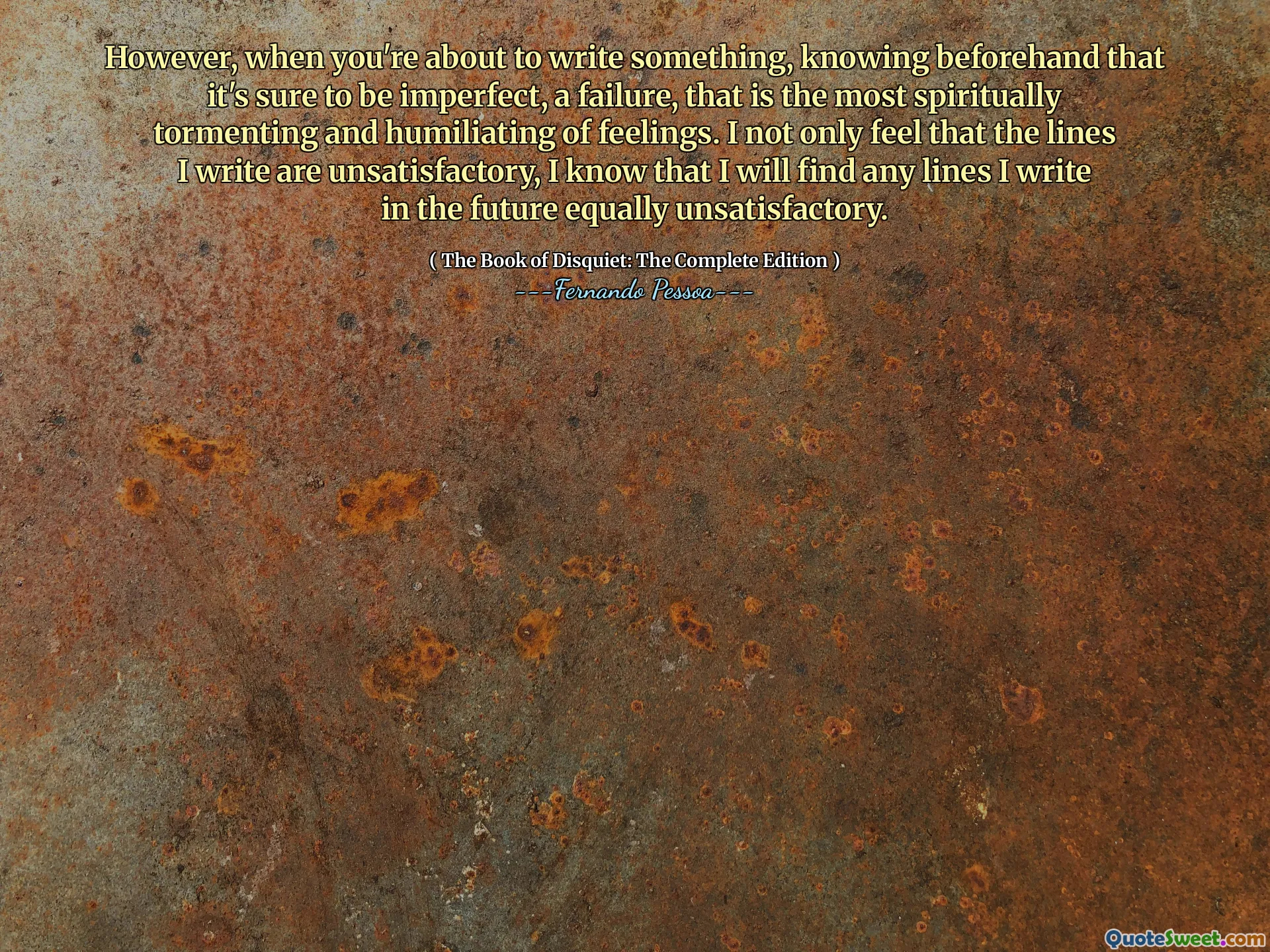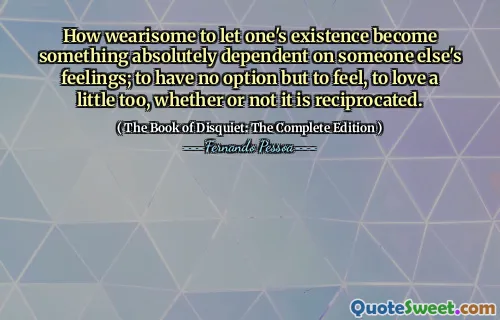
However, when you're about to write something, knowing beforehand that it's sure to be imperfect, a failure, that is the most spiritually tormenting and humiliating of feelings. I not only feel that the lines I write are unsatisfactory, I know that I will find any lines I write in the future equally unsatisfactory.
This poignant reflection captures the inescapable vulnerability and self-criticism that often accompanies the creative process. The anticipation of imperfection can be paralyzing, as it cultivates a mindset where each effort feels inadequate regardless of its actual merit. Such a perspective can be profoundly humiliating, as it induces a sense of consistent failure and inadequacy. In the context of writing, this voice of internal doubt can be a significant barrier, stifling spontaneous expression and eroding confidence. Yet, this recognition also offers a deeper understanding of the human experience: the struggle with self-perception, the relentless pursuit of excellence, and the acceptance of imperfections as inherent parts of any creative or personal endeavor.
The quote encourages a reflection on vulnerability and humility—acknowledging that perfection is an unrealistic goal and that failure is an integral part of growth. It hints at a paradox where the quest for flawlessness hampers potential, yet embracing imperfections liberates and fosters genuine progress. This tension between the desire for perfect expression and the inevitable reality of human fallibility can be challenging but also essential for authentic creation. Recognizing this dynamic allows for a compassionate stance toward oneself, fostering resilience and perseverance despite internal doubts. The quote ultimately underscores the importance of overcoming internal resistance to imperfect work and learning to value the process of continuous improvement rather than fixating on unattainable perfection.
---Fernando Pessoa---







